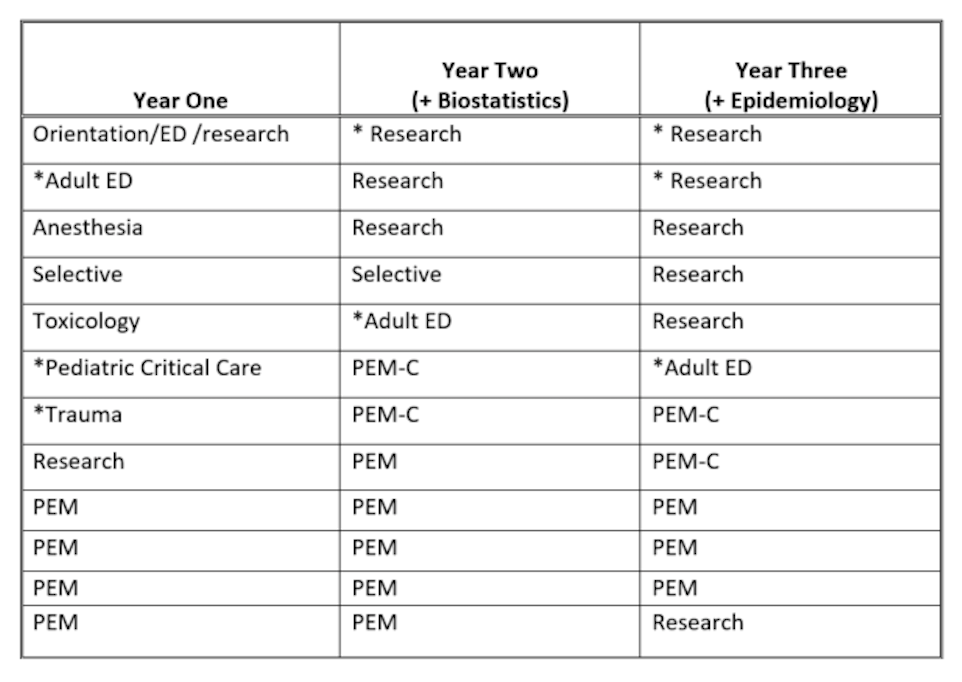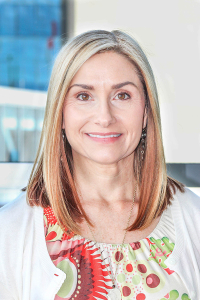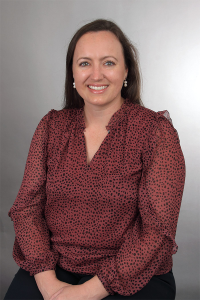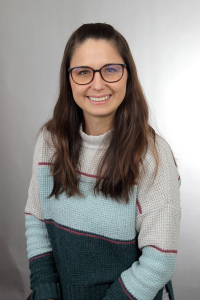The Pediatric Emergency Medicine Fellowship Program at UAB has been in existence for over 30 years. We are the only Level 1 pediatric trauma center in the state and one of the busiest pediatric emergency departments in the country. Children’s of Alabama is the only freestanding children’s hospital and major referral center in the state. We accept three to four fellow applicants a year for a three-year curriculum.
Our program is unique in that we offer the opportunity for fellows to develop autonomy during fellowship training, a state-of-the-art simulation center, specific training in point of care ultrasound, access to a regional poison control center, extensive trauma experience and many teaching opportunities. Our fellows have an intensive didactic educational conference curriculum that includes research, quality improvement, journal clubs, evidence-based medicine, patient safety, radiology review, board review, and interesting cases. We offer various electives and a significant amount of protected research time throughout the training program. Our research program includes online courses in epidemiology and biostatistics, lectures and mentorship with a scholarly project to be completed during fellowship. One of the major benefits our program offers is the unique early supervised graduated autonomy and wide range of patient experiences.
Fellowship Program Mission:
The mission of the UAB Pediatric Emergency Medicine Fellowship program is to prepare physicians to practice independently and be dedicated to the advancement of the field through clinical expertise, scholarly activity, and leadership.
Fellowship Program Aims:
-
To provide a learning environment that will foster the development of clinical and procedural skills necessary to become successful independent practitioners.
-
To produce physicians with skills in research and quality improvement strategies to allow them to support ongoing efforts in the field.
-
To develop effective medical educators to teach future generations of physicians.
To achieve these aims, we emphasize the six core competencies (patient care, medical knowledge, practice-based learning, interpersonal skills,
professionalism, and systems-based practice) and their accompanying 24 PEM specific sub-competencies and milestones. These will be addressed
through a variety of activities as described in each of the sections below.
PEM Information Booklet
Program Information
-
Dear Applicant:
We appreciate your interest in our Pediatric Emergency Medicine Fellowship Program at the University of Alabama at Birmingham! This website provides introductory information describing our Pediatric Emergency Medicine Fellowship Program and the Emergency Medicine Division. Web links are provided here to acquaint you with the facilities we enjoy here at Children's of Alabama and University of Alabama Health System. Also included is web information for our city attractions and general accommodations. We hope that enough information has been provided so that you may get a flavor of what our fellowship, division and city are about.If you are interested in applying to our program, we will be accepting application materials beginning on July 2, 2025. The Pediatric Emergency Medicine Program participates in the Pediatric Subspecialties Fall Match. Interested applicants should apply through the Electronic Residency Application Service (ERAS). In addition to the application through ERAS, we will need:
-
a personal statement
-
curriculum vitae
-
recent photograph
-
MSPE
-
Med School Transcript
-
USMLE/ COMPLEX Transcript
-
Three letters of recommendation – one of the letters must be from your Department of Pediatrics Chairman or from your Residency Director.
All of the above information should be sent through ERAS.
If you must mail any material, please send to:
Terri Coco, M.D.
UAB Pediatric Emergency Medicine
Children's of Alabama
1600 7th Avenue South
Children's Park Place One, Suite 110
Birmingham, Alabama 35233Once we have received the requested completed application along with three letters of recommendation, we will review your application and contact you regarding the possibility of interviewing at our program. We will begin interviewing in September and ending late October for three to four fellowship positions. This program participates in the Pediatric Emergency Medicine Specialty fellowship match through the National Resident Matching Program (NRMP) and will abide by the rules established by this group. Each applicant must sign the "Applicant Agreement" with the NRMP. (NRMP's telephone number is 202-828-0676; website: www.nrmp.org.) Rank order lists are due by November 19, 2025 with the official match results for the 2025 appointments announced on December 3, 2025
We are quite excited about our program and welcome your interest! We believe a fellowship should be an intense, yet enjoyable time of training. We look forward to hearing from you. If you have any trouble accessing your electronic files or need further assistance, please feel free to call (205-638-6557).
Sincerely yours,
Terri Coco, M.D.
Associate Professor of Pediatrics
Director, Pediatric Emergency Medicine Fellowship -
-
Below is a skeleton outline of the monthly rotations required for our Pediatric Emergency Medicine fellowship (arranged in no particular order). We strive to be flexible with our scheduling so that we can meet the interests and needs of our fellows.

-
Clinical Goals
-
Develop skills in initial assessment, resuscitation, stabilization and management of pediatric emergencies.
-
Gain broad knowledge and skills in common and uncommon pediatric emergencies; gain exposure to adult emergencies.
To become excellent clinicians, our fellows gain a wealth of experience from their time spent in the pediatric emergency department. This time is a balance of direct patient care and of supervision of other providers in their care of ill and injured children.
Our first year fellows are expected to successfully complete certification in Basic Life Support, Advanced Trauma Life Support, and Pediatric Advanced Life Support. Experience in orthopedics, toxicology, intensive care medicine, anesthesiology, trauma, and adult emergency medicine provides our first year fellows with essential skills and knowledge to supplement their pediatric emergency medicine training.
With the acceptance of the PEM accreditation requirements (approved by the ACGME June 1998), a total of four months of adult experience are required during fellowship with three of these months in adult emergency medicine. These months are spent down the street with the UAB Adult Emergency Medicine Program. Our fourth month is spent with the UAB adult trauma surgery team.
-
-
-
Develop effective bedside and didactic teaching skills.
-
Become a teacher/leader in community.
Teaching skills are developed through multiple avenues. The most commonly encountered areas of teaching for our fellows are:
-
Precepting residents and mid-level providers in the pediatric emergency department
-
Giving lectures to residents, fellows, faculty, etc.
-
Participating in and leading simulation experiences
-
Educating the community and other health care professionals through numerous opportunities with the Southeast Child Safety Institute and the Regional Poison Control Center
-
Teaching Pediatric Advanced Life Support courses throughout the year
-
-
-
Develop a strong research foundation through formal training.
-
Gain experience in grant writing, project development, and paper presentation.
Fellows are expected to initiate, develop, implement and complete a research project during their fellowship. A Scholarly Oversight Committee (SOC) of three individuals is assigned to each fellow and is a critical part of their research experience. From their research, fellows are expected to submit the completed project to a national meeting for presentation and to submit an article to a peer reviewed journal.
The goal of the first few months of fellowship is to begin to target an area of research interest. During the following months, fellows will develop a project, and provide a proposal. Fellows Research Conference is held quarterly where the fellows present their ideas, progress, and final project. Time for scholarly work and research is provided throughout the fellowship with special emphasis in the third year. Our fellows are also required to take courses in epidemiology and biostatistics online. If desired, a course in ethics and a Masters in Public Health are available during fellowship with tuition reimbursement.
The American Board of Pediatrics’ Sub-Board of Pediatric Emergency Medicine requires fellows to exhibit sufficient evidence of scholarly activity in order to be eligible for board certification. Sufficient evidence could include:
-
First author of an accepted research project in a peer-reviewed journal
-
A research grant proposal approved through a critical review process
-
A post-graduate degree in a related field (PhD)
-
A research progress report.
Our fellows are also required to take courses in epidemiology and biostatistics at the UAB School of Public Health. If desired, a course in ethics and a Masters in Public Health are available during fellowship.
-
-
-
Understand the relationship of Emergency Medicine to hospital administration and committees.
-
Become familiar with medical/legal issues, quality improvement, finances and scheduling.
-
Understand state and regional administrative control of Emergency Medicine Systems.
Fellows will attend staff and administrative meetings to become familiar with the proceedings. They will be involved in hospital committees according to their interests. The fellowship program has a robust quality improvement and patient safety curricula in which each class of fellows will develop a quality improvement project during their fellowship. Accordingly, a list of administrative requirements must be completed prior to completion of their fellowship.
-
Our Team

Terri Coco, M.D.

Christina Cochran, M.D.
